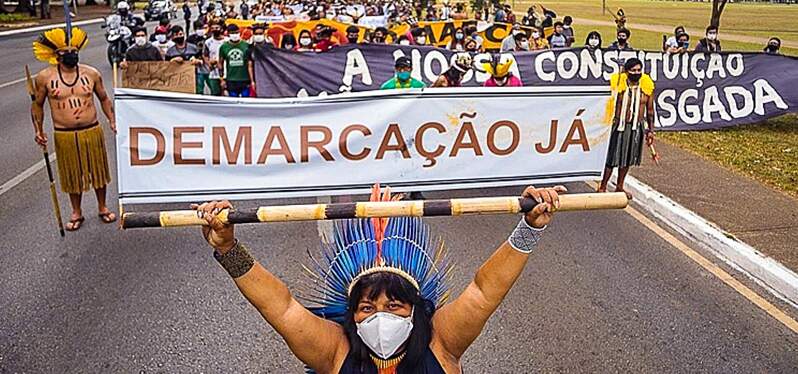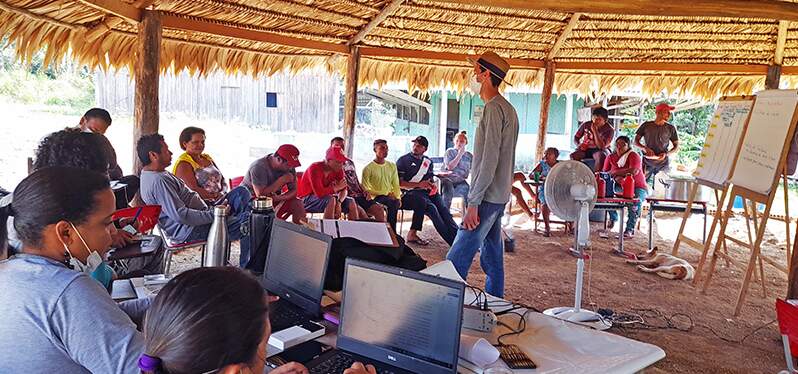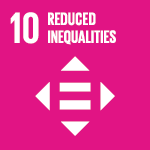Posted in: 02/07/2023
The National Day of Struggle of Indigenous Peoples , celebrated on February 7th, reinforces the struggle for the right to land , against the destruction of nature , for the preservation of culture and traditions and for the demarcation of land for original peoples .
The date was chosen in honor of the Guarani Sepé Tiaraju , killed on February 7, 1756, during the battle of Caiboaté , in which about 1500 indigenous warriors were killed after being expelled from their lands, due to the Treaty of Madrid – which decreed the evacuation of indigenous lands.
In order to represent this struggle of more than 250 years , seeking and demanding solutions, indigenous peoples increased their presence in the political scenario . In 2022, 186 indigenous candidates were launched , compared to 133 in 2018 and 85 in 2014. In the Chamber of Deputies, five indigenous candidates were elected :
After the change of government, Sônia Guajajara was appointed minister of the then unprecedented Ministry of Indigenous Peoples . In addition to her, Joênia Wapichana will be the new president of the National Foundation for Indigenous Peoples ( FUNAI) , setting up the first time for an indigenous woman to lead the institution.
With lands being invaded, indigenous peoples and traditional communities have been fighting and demanding public bodies for the demarcation of lands and for stricter measures to search, apprehend and punish invaders.
In 2021 alone, 305 occurrences of invasions, illegal exploitation and property damage were recorded in 226 indigenous lands , according to the report Violence Against the Indigenous Peoples of Brazil , published by the Missionary Indigenous Council (Cimi). These crimes are directly linked to illegal mining, land grabbing, hunting in territories, illegal logging and fishing.

The invasions have been accompanied by a lot of violence , including armed attacks , causing the death of indigenous men, women and children . Cases like these were explicit with the Munduruku people , in Pará, and Yanomami , in Roraima and Amazonas.
In combating these actions, the Minister of Indigenous Peoples, Sônia Guajajara, foresees the demarcation of 14 indigenous lands in 2023, located in Acre, Amazonas, Bahia, Ceará, Mato Grosso, Paraíba, Rio Grande do Sul and Santa Catarina.
Synergia has been operating in the Brazilian Amazon for more than 10 years and, during that time, it has put into practice several projects aimed at developing production chains , generating income and empowering native peoples .
Since 2019, among other programs, we have been working on the implementation of the Basic Environmental Plan for the Indigenous Component (PBA-CI) involving 8 Indigenous Lands (TIs) located in the Xingú region, in Altamira (PA).
These programs had a positive impact on the food security of the people, enabled the sale of products and income generation , in addition to training indigenous people as monitors or environmental agents, who are dedicated to the management and protection of the territory .

Another project in which Synergia is involved, through management , is the Xingu Regional Sustainable Development Plan (PDRSX) which, through its thematic axis for indigenous peoples and traditional communities, promotes the support and strengthening of production chains and indigenous and riverine associations. The plan also includes support from the fund for proponents who work on extracting babassu oil in the region .
In addition, the company maintains regular communication programs with indigenous communities, which include around 4068 indigenous people in the Middle Xingu region – distributed in 90 villages and 13 Indigenous Lands (TIs).
The development of projects in the territories collaborates with development in the regions where indigenous populations live. However, more comprehensive public policies are still needed so that native peoples can live more fairly and have their spaces and traditions respected .

Sign up and receive our news.